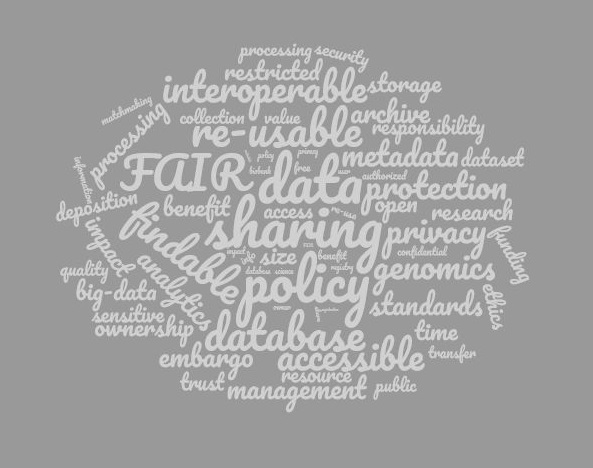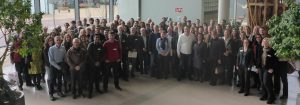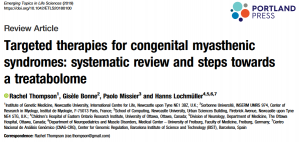
Category: News
Job offer: Postdoc in computational genomics

Job offer: Postdoc in computational genomics
A postdoctoral researcher position in Genomics, Bioinformatics, and Statistical Genetics is available in the Computational Genomics group at the Institute of Medical Genetics and Applied Genomics. We are looking for an early experienced, highly motivated researcher with a strong enthusiasm to conduct cutting-edge research at the interface of computational biology and clinical genomics. The position is part of the EU-funded research project “Solve-RD – Solving the Unsolved Rare Diseases” (www.solve-rd.eu), in which we apply the latest sequencing technologies such as whole-genome sequencing, long-read RNA-seq and single cell sequencing to investigate 19,000 unsolved cases of rare genetic diseases. The successful candidate will be part of a large European network of researchers working on computational genomics, rare genetic diseases and personalized medicine.
See job posting here.
Data Sharing Policy

Data Sharing Policy
The Solve-RD Data Sharing Policy has been updated and is now publicly available. Solve-RD aims to make data FAIR - Findable, Accessible, Interoperable and Re-usable. The most important points of the Solve‐RD Data Sharing Policy:
- All exome/genome sequencing data as well as phenotypic data from unsolved patients will be submitted to the RD‐Connect Genome‐Phenome Analysis Platform (GPAP)
- All IT systems used in Solve‐RD comply with the General Data Protection Regulation, GDPR (Regulation (EU) 2016/679)
- Options for uploading datasets include single dataset upload and bulk upload
- Specific data access stipulations for Solve‐RD in GPAP:
- All data submitters will be able to see which other users have accessed their submitted datasets and when
- If justified Solve‐RD data submitters can define longer embargo periods before data become accessible to other users.
Solve-RD GPAP webinar
Solve-RD GPAP webinar
Solve-RD uses the RD-Connect Genome-Phenome Analysis Platform (GPAP) to analyse exome and genome sequencing data of rare disease patients. Phenotypic information (HPO-based) is being collected using PhenoTips.
In this webinar we will show how to use the RD-Connect Genome-Phenome Analysis Platform to analyse your data and explain the different functionalities and settings of the platform.
Solve-RD PhenoTips webinar
Solve-RD PhenoTips webinar
Solve-RD uses the RD-Connect Genome-Phenome Analysis Platform (GPAP) to analyse exome and genome sequencing data of rare disease patients. Phenotypic information (HPO-based) is being collected using PhenoTips.
In this webinar we will show how you can create PhenoTips entries and explain the different steps to submit your data to the RD-Connect Genome-Phenome Analysis Platform.
European Rare Disease Models & Mechanisms Network (RDMM-Europe)
European Rare Disease Models & Mechanisms Network (RDMM-Europe)
Solve-RD is about to establish a European Rare Disease Models & Mechanisms Network (RDMM-Europe) using the successful Canadian blueprint as a role model.
The goal of RDMM-Europe is to link clinicians discovering new genes in patients with rare diseases with basic scientists, who can functionally analyze equivalent genes and pathways in model organisms. Solve-RD will provide 50 Seeding Grants (20,000 EUR each) to fund projects that will allow rapid confirmation of potentially disease-causing genes and elucidation of the underlying molecular disease mechanisms.
The RDMM-Europe registry has now been implemented. European model organism investigators are encouraged to register in the RDMM-Europe registry and enter the genes/pathways they are working on for the respective model organism(s). Registration will express an interest in linking to clinicians representing patients with rare diseases and collaborating in projects funded by Solve-RD.
The Solve-RD Scientific Advisory Committee will use the registry database to determine which scientists are doing work relevant to human disease genes newly identified in the project. Registrants who meet the criteria for a given gene will be invited to apply for a Seeding Grant.
Solve-RD beneficiaries and associated partners will be able to submit a Connection Application to the Solve-RD Clinical Advisory Committee to functionally validate a newly discovered disease gene. We will inform our partners as soon as this is possible.
Further information can be found here.
Solve-RD Publication Policy

Solve-RD Publication Policy
The Solve-RD Publication Policy is now available for download from our website. It provides detailed information about authors' responsibilities with regard to publication of shared data and data resulting from the Solve-RD project. It also explaines how to acknowledge Solve-RD funding, use of the RD-Connect Genome-Phenome Analysis Platform and ERN involvement.
All public project documents are available here.
Solve-RD Annual Meeting 2019

Solve-RD Annual Meeting 2019
From 7-8 February 2019 the Solve-RD Annual Meeting 2019 took place in Nijmegen, the Netherlands, hosted by our Partner Radboud UMC. More than 100 participants from Solve-RD partners, associated ERNs and Undiagnosed Disease Networks attended the meeting.
The meeting was a great success! The first day focussed on what has been achieved in the first year whereas the second day was a working day with meetings of different working groups and the four core ERNs (ERN-GENTURIS, -ITHACA, EURO-NMD, and -RND) to discuss and organise the next steps. In addition, workshops on the re-analysis of phenotypes (led by the INSERM-Orphanet team) and on data analysis in GPAP (led by Steve Laurie from CNAG-CRG) have been given.
New publication: Targeted therapies for congenital myasthenic syndromes: systematic review and steps towards a treatabolome

New publication: Targeted therapies for congenital myasthenic syndromes: systematic review and steps towards a treatabolome
New publication by Rachel Thompson et al on the treatments available for the congenital myasthenic syndromes (CMS) and the development of a “treatabolome” to improve the accessibility of information on treatable rare diseases is now available online.
In this publication Thompson et al look into ways we can improve access to the important information that a particular disease has a treatment available. Most rare genetic diseases do not currently have curative gene-based therapies available, but in some cases a particular drug or intervention can have a significant effect on disease course and functional ability. Ideally, this information would be immediately accessible to the clinician treating the patient at the time of diagnosis, but too often this is not the case and the details can only be discovered after more extensive literature study or expert referral, meaning that for many patients there is a delay before they are put on the optimal therapy. The question is further complicated by the fact that some treatments are only effective for certain genetic causes, even when the overall phenotypic presentation is very similar.
In Solve-RD, disease experts from different European Reference Networks will perform similar reviews of the evidence and bioinformaticians from the Centro Nacional de Análisis Genómico (CNAG-CRG) in Barcelona will make them accessible in database form for incorporation into genomic analysis platforms such as RD-Connect.
More infos from the Lochmüller lab can be found here.
Solve-RD webinars on the RD-Connect Genome-Phenome Analysis Platform

Solve-RD webinars on the RD-Connect Genome-Phenome Analysis Platform
Solve-RD uses the RD-Connect Genome-Phenome Analysis Platform (GPAP) to analyse exome and genome sequencing data of rare disease patients. Phenotypic information (HPO-based) is being collected using PhenoTips. We are now organising two webinars to train clinicians, scientists and bioinformaticians on how to submit and analyse data using GPAP.
PhenoTips & data submission to GPAP
We will show how you can create PhenoTips entries and explain the different steps to submit your data to the RD-Connect Genome-Phenome Analysis Platform. There will be time to answer your questions.
- Date: Wednesday, 16 January 2019, 12:00-13:00 CET
- Trainer: Leslie Matalonga Borrell, Centro Nacional de Análisis Genómico, Barcelona, Spain
- Registration: https://goo.gl/forms/DVKoqj3fiWOcHVpm1
Data analysis in GPAP
We will show how to use the RD-Connect Genome-Phenome Analysis Platform to analyse your data and explain the different functionalities and settings of the platform. There will be time to answer your questions.
- Date: Friday, 18 January 2019, 12:00-13:00 CET
- Trainer: Steven Laurie, Centro Nacional de Análisis Genómico, Barcelona, Spain
- Registration: https://goo.gl/forms/i2OZCfTvf4j2adZm1
